Higher Education
Our outreach and education program will provide research and educational opportunities both for those undergraduates who are already interested in Critical Zone research as well as for the broader population of students and faculty who may currently know little about the Earth’s Critical Zone. The core of this program will be based at Roanoke College (an undergraduate institution), however efforts will also be solidly supported at the research universities of Duke, Georgia, Georgia Tech, Mississippi State, and Kansas. Undergraduate research will be supported through summer research positions associated with on-going research projects and shadowing opportunities, along with tuition and travel support to promote student attendance at research conferences and workshops. In addition, several motivated undergraduates will be selected annually to be supported at research planning meetings and conferences. Undergraduate research opportunities will be advertised at both research universities and 4-year institutions.
To promote understanding of Earth's CZ within undergraduate institutions, we will develop and field test a set of web based "off-the-shelf" educational materials for undergraduates and advanced high school students, based in part on data from the Calhoun. Lab and classroom materials will be designed as free standing, inquiry-based modules that emphasize development of critical and quantitative reasoning skills. In addition to using datasets collected in research studies, additional areas at the Calhoun can be instrumented to create on-line laboratories that provide students an ability to access and analyze real-time data (e.g., temperature and moisture probes, mini-rhizotrons, and webcams). Maps, video interviews with researchers, case studies, and links to contemporary CZ issues will help establish the relevance of the Earth's Critical Zone and convey the sense of discovery and excitement behind the numbers. Modules will be pilot tested at Roanoke College in courses for both science majors and non-science majors alike. Additional undergraduate and advanced high school classrooms in the southern Piedmont will be recruited to participate in testing and development. Modules will be discussed in conference sessions and workshops at both scientific and pedagogical meetings, published on-line and in pedagogical journals, and disseminated widely through a variety of educational networks.
Undergraduate education
At Roanoke College, Duke, the University of Georgia, and the University of Kansas, undergraduates were involved in various ways with CZ science and the Calhoun CZO. At Roanoke College, PI O'Neill has provided training and opportunities for professional development to undergrads by supporting eight independent studies and research projects, including two senior theses related to CZ science. Laboratory and classroom activities have been developed and tested as part of the development of CZ educational materials that have been part of the education of more than 50 undergraduate Roanoke College students in the last 18 months. One Roanoke undergraduate was enthusiastic enough to volunteer to work on two hot very arduous Calhoun summer field trips "in order to get field experience." At Duke, a new interdisciplinary course entitled "Environment in Literature, Law, and Science" was given to more than 50 undergraduates, and the Earth's critical zone was made a cornerstone of the science in the class. Also at Duke, twelve undergraduates in North Carolina State University's REU in Soil Science were given a day-long field tour in CZ science. At UGA, undergraduates were trained by a Calhoun CZO PhD student in the soil judging competition in which the undergraduate team achieved national-level awards. Undergraduates also worked in a soil physics laboratory, completed a senior thesis, and three interned in a clay mineralogy lab processing CZO samples for isotope analyses. An undergraduate from DePauw University interned with a UGA CZO lab to satisfy his experiential learning requirement for his degree program. At the University of Kansas, three undergraduates were trained to use lab equipment to analyze soil sample incubations.
Graduate education
At Duke, Georgia Tech, Mississippi State, the University of Georgia, and the University of Kansas, graduate students are involved in significant ways with our CZ science and the Calhoun CZO. At Duke, seven PhD students are working on CZ biogeochemistry, hydrology, and systems modeling. Five have earned support from an NSF IGERT program in wireless technologies. At Georgia Tech, graduate students work in Rafael Bras' and Jingfeng Wang's laboratories with highly talented post-docs and visiting research scientists at the flux tower, in model development and simulation, and data production, processing, and analysis. At Mississippi State, a graduate student has worked to collect and analyze environmental history data. At the University of Georgia, graduate students are trained to collect and analyze field EMI, electrical resistivity, stream chemistry, and soil phosphorus data. At the University of Kansas, graduate students are trained in the use of soil and enzyme incubation techniques to assess soil microbial activities. All of these graduate students are presenting their results and integrated CZ science at a wide variety of forums, from AGU and EGU to local science and 4-H clubs. Calhoun PIs try to interact with all of these graduate students across institutions. They are publishing papers in flagship science journals such as Water Resources Research, receiving awards the interdisciplinary training that is needed for the next generation of Earth scientists.
News
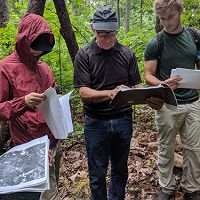
FEATURED
Graduate Student Critical Zone Reading Group Wraps the Semester with a Field Trip to Calhoun CZO
12 Jun 2019 - Five students travelled to Union, South Carolina for a two-day site visit June 6 – June 8 at the Calhoun CZO. This site visit was the...
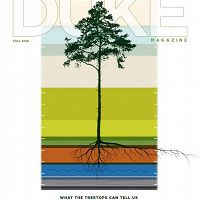
FEATURED
Calhoun CZO featured in Duke Magazine
14 Nov 2018 - How critical zone science unearths secrets: The new cross-disciplinary field of study concerns itself with the living skin of the Earth.
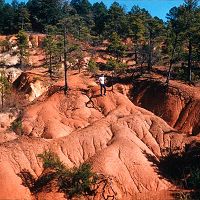
FEATURED
2018 Southeast Friends of the Pleistocene Field Conference
09 Feb 2018 - Geophysics, Geochemistry, and Biogeochemistry of the Southern Piedmont Critical Zone
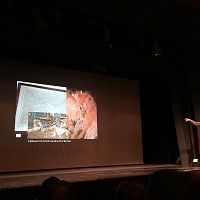
FEATURED
Bruno Latour talks about the Calhoun CZO in Munich
08 Dec 2016 - Bruno Latour, anthropologist and philosopher of science, gave a talk on Critical Zone science and the Anthropocene entitled "From the Anthropocene...
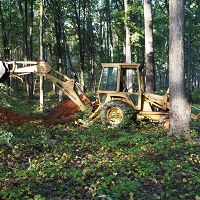
FEATURED
Eight new soil pits dug at the Calhoun!
17 Oct 2016 - Eight soil pits were installed at the Calhoun CZO on 17-18 October 2016 for easy access for soil sampling down to 2 meters. Photo: Will Cook.
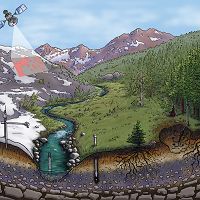
Undergraduate course curriculum, “Introduction to Critical Zone Science,” available free online
01 Jan 2018 - A 15-week semester-long upper-level undergraduate course curriculum entitled “Introduction to Critical Zone Science” is now available free online.
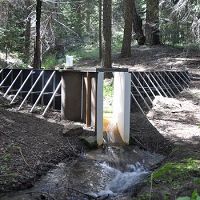
Water Resources Research Special Collection: Concentration-discharge relations in the critical zone
30 Oct 2017 - Water Resources Research published a new special collection in September 2017 featuring concentration-discharge research from multiple CZOs.
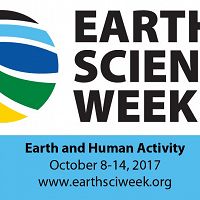
Earth Science Week 2017 Video Contest
15 Aug 2017 - For Earth Science Week 2017, the American Geosciences Institute invites you to enter the Earth Connections video contest. Submit a brief, 30-90...

2017 CZO Webinar Series: Critical Zone and Society
06 Apr 2017 - 2017 CZO Webinar Series: Critical Zone and Society.
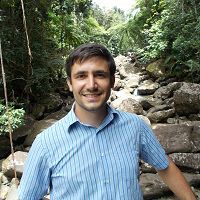
Critical Zone Profile - Diego Barcellos
09 Jun 2016 - PhD Student, Soil Science, University of Georgia
Explore Further
